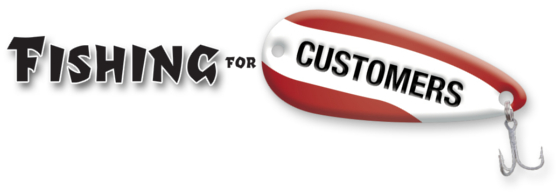I wasn’t paying much attention to the news in 1957. I don’t think I’d have noticed when James Vicary coined the term “subliminal advertising.” But the advertising world perked up and started paying very close attention.
According to a study Vicary published that year, he had placed a tachistoscope in a theatre projection booth in New Jersey during the summer of 1957. All throughout the playing of the film Picnic, he injected one of two different messages on the screen every five seconds, each exposed for only one three thousandth of a second. The first message: “Drink Coca-Cola.” The second: “Hungry? Eat Popcorn.” According to Vicary, during the test Coca-Cola sales shot up 18.1%, and popcorn sales showed an astronomical 57.8% boost.
Radio and television stations began airing subliminal commercials in 1958 and 1959. Congress promptly proposed bills to ban the use of such manipulation. Instantly there were scholarly books written about the potency of subliminal advertising and it’s ability to persuade unaware consumers to purchase things they wouldn’t have normally bought.
It also helps to remember that Joe McCarthy had just finished finding a communist under every bed in Hollywood, and that the Rooskies had pushed Sputnik into orbit ahead of our Tellstar. Americans were convinced that there were forces shaping their destinies and they had no control over them.
Dr. Wilson B. Key published his book Subliminal Seduction in 1973, pointing out messages and secret signals in advertising, including the now-famous example of a full-page photo of a gentleman’s study. In the center of the photo was the gentleman’s leather chair and a glass of scotch on a table by that chair. When the glass was enlarged from it’s original 3/8 inch, Dr. Key was convinced the ice cubes spelled out the letters S-E-X. Acccording to him, the word “sex” (which we couldn’t make out without a magnifying glass), was a motivator to purchase the product being advertised.
The controversy over subliminal advertising had become so persistent that in January of 1974 the Federal Communications Commission threatened to pull the licenses of any broadcast stations using subliminal techniques.
But a very interesting thing had happened, largely unnoticed by the media. Dr. Henry Link, the President of the Psychological Corporation, tried to duplicate the test. He didn’t get the same results. In fact, in his test there was no difference between Coke and popcorn sales during the test as compared to sales before the test. Dr. Link challenged Vicary to re-produce the results.
Vicary finally confessed to falsifying the data.
Vicary had previously published a variety of unusual studies of female shopping habits, in which he studied the eye-blink rates of women shopping in supermarkets. He observed that “psychological spring” lasts twice as long as “psychological winter.” He won’t be remembered for any of those experiments, though. He’ll be remembered as a fraud.
So, imagine my surprise when I was browsing the web this weekend and came across a site which claimed, and I quote: “Advertising in magazines is based on the fact that under any circumstances, you store more information in a fraction of a second–and are influenced by it–than you are ever consciously aware of.” The site provides quite an education on the power of subliminal advertising… including the assumption that “they” don’t want you to know about it. Of course, this site also had links to such other sites as “Will the earth’s surface skid?”
This stuff is still around? Yes. Conspiracy theorists are convinced that subliminal advertising exists, and is being used against an unsuspecting public. And apparently there are speakers commanding stout fees for pointing out the “clues” to a fascinated unsuspecting public. They all have web sites with “proofs” of their claims. A simple search will pull up plenty of them for you to amuse yourself with all day.
But consider this: it’s hard enough to persuade people when you can manage to get their attention. Yes, it is possible for people to learn without full awareness, but there is a limit to the human brain’s ability to process data. The more we pay attention, and the more we think about what’s being said, the easier it is to remember the message later.
Advertising that we pay little or no attention to is not mysteriously powerful. It is rather amazingly weak and inefficient. Like I said, it’s hard to persuade people when you have their attention. Getting them to buy from you by NOT getting their attention? Don’t bet your advertising budget on that premise.
Besides, when I see the word “SEX” I don’t immediately think of a specific brand of scotch.
If you are interested in learning how to persuade people to buy what you have to sell, let me recommend the 12 Most Common Mistakes in Advertising DVD from Wizard Academy Press. Best-selling author (and my partner) Roy H. Williams has identified the most common mistakes that advertisers make over and over again. At the publisher’s direct price of only $19.95 (US) you’ll learn why your ads aren’t working so well, and how to get better results.
